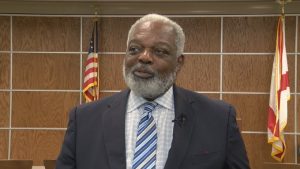The judge set the sentencing date for November 1 after a Florida jury recommended that Nikolas Cruz, 24, receive a life term without the possibility of parole for the Parkland school shooting.
The hearing will get underway at 9:00 ET.
Cruz was put on trial for the February 2018 massacre at Parkland, Florida’s Marjory Stoneman Douglas High School, which claimed the lives of 17, including 14 students and three school employees. He’d entered a guilty plea.
Also read: Nikolas Cruz family: All you need to know
Cruz was found guilty after a protracted trial that lasted several months. The jury was persuaded to impose the death penalty on the gunman, who is now 24 years old, based on the prosecution’s claim that his crime was particularly heinous or cruel.
Cruz’s sentence defaults to life in prison without the unanimous jury recommendation required by Florida law, contrary to the gunman’s defence attorneys’ requests. Cruz was said to have suffered from mental diseases and developmental disabilities all of his life.
Lawyers for Cruz pleaded with the jury previously to spare his life. Melisa McNeill, the lead defence attorney, urged the jury to impose a life sentence rather than the death penalty on her client. In her final remarks, she argued that doing it is the right thing to do.
Also read: Parkland school shooter, Nikolas Cruz sentencing: Jury recommendation
McNeill wanted the jury to distinguish between Cruz the person and the gun spree that claimed the lives of 17 people. “What Nikolas Cruz did should make you angry and sad. There is nothing wrong with feeling those feelings,” she assured them.
In the drawn-out trial, both the prosecution and the defence presented evidence of aggravating and mitigating circumstances, arguing for and against Cruz’s execution.
Lead prosecutor Michael Satz testified throughout the trial that the state had identified seven such aggravating circumstances, including the fact that the murders were particularly horrific, awful, or cruel, as well as cold, calculating, and premeditated.
Other aggravating considerations include the defendant’s knowledge of the high risk of many lives being lost and the disruption of a legitimate government function, in this case, the operation of a school.
Also read: Parkland school shooter, Nikolas Cruz avoids death penalty after jury recommends life in prison
According to Satz, the combination of these aggravating elements “outweigh any mitigation about anything about the defendant’s background or character.”
Prosecutors provided evidence to support their case that the shooter spent months researching mass shootings online and left behind social media remarks expressing his explicit wish to “kill people.”







